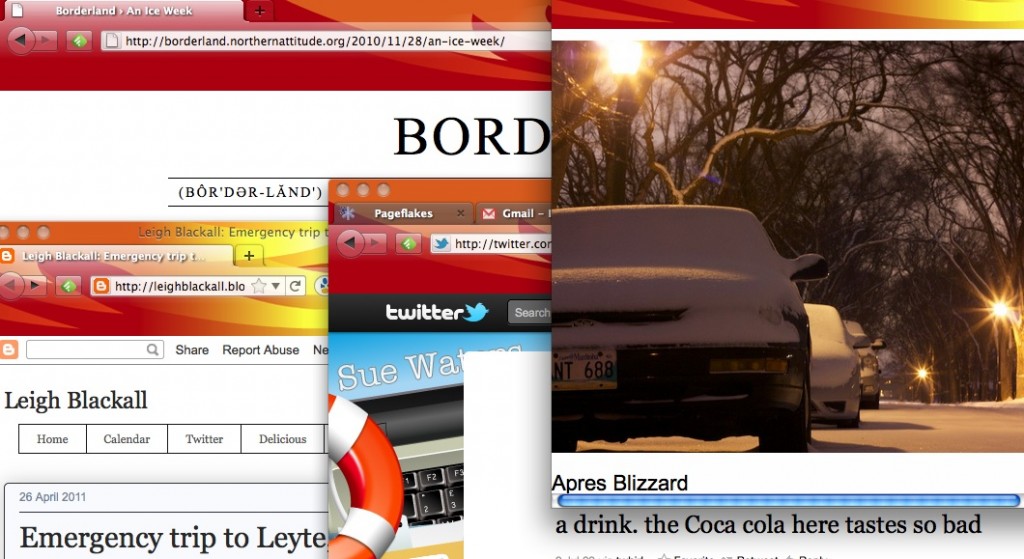My two sons, seven and eleven respectively, enjoy games. They quite enjoy a game of Uno, Monopoly or Sorry, but their favourite form involves digital formats. They both own a Nintendo DS, we had a Nintendo Wii and an aging Playstation 2, plus they share the family Windows desktop where they are very adept at finding different forms of games to play. The portable DS systems go with us a lot - over to the grandparents' house on a Friday or in my office or classroom when one of them is dropped to me while the other goes to swimming or speech therapy. The boys go through phases with games, feeding off each other's choices with my younger, Joshua, usually leading the way and his older brother joining in when he feels he can see what the whole thing is about and whether there is an appeal for him. The phases sometimes tie to other media - last year, Joshua started getting into the Star Wars series of films where he started buying Star Wars themed Lego with his pocket money and we ended getting the Star Wars Lego Wii game that he promptly and systematically starting working his way through. Aaron never bit during this particular obsession but earlier this year, Pokemon became the new focus for both boys.
I started thinking about the Pokemon factor in games and culture in general for kids when considering Digital Literacy for a presentation I was planning for the canned CEGSA/SLASA conference. It was easy to see as it quickly become part of the everyday conversation and paraphernalia around our home. It started with a DS game, Pokemon Diamond and a Christmas gift Pokepark for the Wii, and has currently expanded to a small collection of small plush toys, a couple of very complex Strategy Guide and Pokedex books and even ended up with the hardcore gamer action of pre-ordering the latest Black version of the DS game before its early March release. That was a strange feeling, standing in EB Games handing over contact details and trading in old games to build up credit to pre-purchase a game that would be sold out within a day and impossible to get quickly any other way. It has spread to research as well, as the boys have hunted down details of pre-DS games - Red, Blue, Emerald, LeafGreen and the list goes on.
"Awww, I wish I could play these games, Dad. They look cool."
"Well, actually you can although it's not really legal. The games you found listed on Wikipedia are all from a system called Gameboy Advance that you can't buy in the shops any more. Fans of these games have converted these games into files you can play in an emulator on the computer."
"What's an emulator?"
"Just a version of the original game system that comes up on your computer screen. You search for these game files, called ROMs on different websites, download them and you can run them pretty much like the original game through the emulator."
"I want those games now!"
So, old skool video games are easy to find and use. Leaving aside the ethical issues surrounding IP and the hold that multinational companies like Nintendo and Sony have on the minds of our young people, it is an amazing way hands on way to explore the history of video games and how the gameplay and graphics have evolved to become more sophisticated and rich in both narrative and challenge. It is interesting that the quality of the imagery is not all that important to my boys - what you do in the game and where you can go is vastly more important. Gaining experience, unlocking levels and gaining new powers and characters are the key components for them. I even had to take Joshua back to the store to use their wi-fi to pick up a virtual gift card in the game that would unlock an unique character only available for a short period of time (again a deal for those dedicated pre-ordering customers) because it would give him credibility back in the school yard when discussing prowess with his friends.
They both enjoy a variety of game sites online although I've had conversations warning them off certain sites that have very virus-y looking pop-up windows that they blissfully ignore. Joshua would already have five or six free memberships to online sites that contain some form of in-world interaction, ranging from the World of Cars site to the fun Poptropica. As with any popular game, user created content abounds in the form of FAQs and walkthroughs. When Dean blogged about Lego Universe, I told Josh that I probably allow him to join if the fees were reasonable but so far, Australia seems to be too small a market for inclusion. Again, creative enthusiasts are doing things like creating a US based identity, paying via Paypal etc, in order to gain access.
There are times when my wife and I worry that maybe the boys spend too much of their time on gaming but that could be just our own insecurities surfacing. After all, I'm not much of a gamer. My two favourites are actually Guitar Hero (despite having extremely limited musical ability) and Need For Speed (ironic for a guy who drives a Toyota) but I can see how engaging they are for my boys on a daily basis. It's even more than that though - gaming is part of their culture, it forms a core part of their conversation and how they relate to their peers and offers pure no-strings-attached pure enjoyment.


